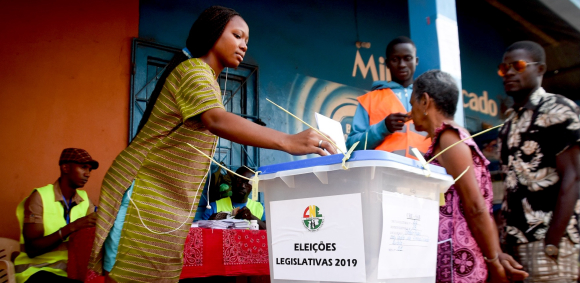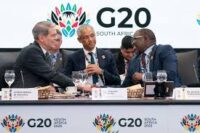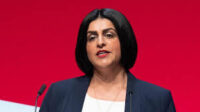Liberia has made history by unveiling Africa’s first Youth Entrepreneurship Investment Bank (YEIB), a $16 million initiative backed by the African Development Bank (AfDB) aimed at combating youth unemployment and fostering inclusive economic growth. The landmark launch took place at the Ellen Johnson Sirleaf Ministerial Complex, attended by President Joseph Nyuma Boakai and AfDB President Dr. Akinwumi Adesina, who both hailed the initiative as a groundbreaking step towards empowering Liberia’s youth and unlocking the country’s economic potential.
President Boakai emphasized that the YEIB represents more than just a financial institution; it is a message of hope to Liberia’s young population, over 60% of whom are under 35 and face high unemployment or underemployment rates. “Our youth are not just the future, they are the now. This Bank tells our young people that they are seen, they are needed, and they are finally being invested in,” Boakai declared. The YEIB will provide financing, mentorship, and incubation for youth-led businesses, supporting Boakai’s ARREST Agenda, which focuses on Agriculture, Roads, Rule of Law, Education, Sanitation, and Tourism as key drivers for national revival.
AfDB President Dr. Akinwumi Adesina described the YEIB as a “new era in development finance,” underscoring that Africa’s prosperity depends on value-added production driven by young innovators with access to finance. “The export of raw materials is the door to poverty; the export of value-added products is the highway to wealth,” Adesina said in his keynote address, “Liberia: Arise and Shine.”
Since 1967, the AfDB has invested over $1.02 billion in Liberia, with 18 active projects valued at $408 million spanning transport, energy, agriculture, and public sector reform. Under Adesina’s leadership, the AfDB’s capital base grew from $93 billion to $318 billion in just a decade, reflecting a transformative shift in development financing across Africa.
President Boakai used the occasion to call for AfDB’s support in the proposed Liberty Corridor Project, a regional trade and transport network that would connect Liberia with Guinea, Mali, and Burkina Faso, positioning the country as a strategic gateway to the Atlantic for landlocked neighbors.
In his address, Adesina urged Liberia’s leadership to adopt performance-driven governance, stressing that ministers should embrace ambitious targets and measurable results to accelerate national development. Drawing from his own experience as Nigeria’s agriculture minister, he recounted how setting a bold target of producing 20 million tons of food in four years led to unprecedented achievements through teamwork and accountability.
The launch also highlighted the importance of strong institutions, with both leaders emphasizing civil service reform and judicial independence as cornerstones of sustainable economic growth. “The civil service is the engine of government, but it must be aligned with the national vision,” Adesina noted, while Boakai called for restoring dignity and integrity to Liberia’s public sector.
Beyond economic reforms, the event underscored education as a foundation for transformation. President Boakai dedicated a new model school building, symbolizing his administration’s commitment to empowering future generations through quality learning.
Under Adesina’s High 5s strategy, the AfDB has already impacted 565 million Africans by improving healthcare, infrastructure, energy access, food security, and investment mobilization. The Bank’s $25 billion Africa Adaptation Acceleration Program (AAA-P) remains the largest global climate adaptation initiative, highlighting its commitment to sustainable development.
The launch of the Youth Entrepreneurship Investment Bank places Liberia at the forefront of youth-focused economic reform in Africa. It aligns with the African Union’s Agenda 2063 and global Sustainable Development Goals, addressing critical challenges of job creation, poverty reduction, and inclusive growth. With AfDB’s backing and Boakai’s vision, the YEIB could become a model for other African nations seeking to transform demographic potential into economic prosperity.














Leave a comment